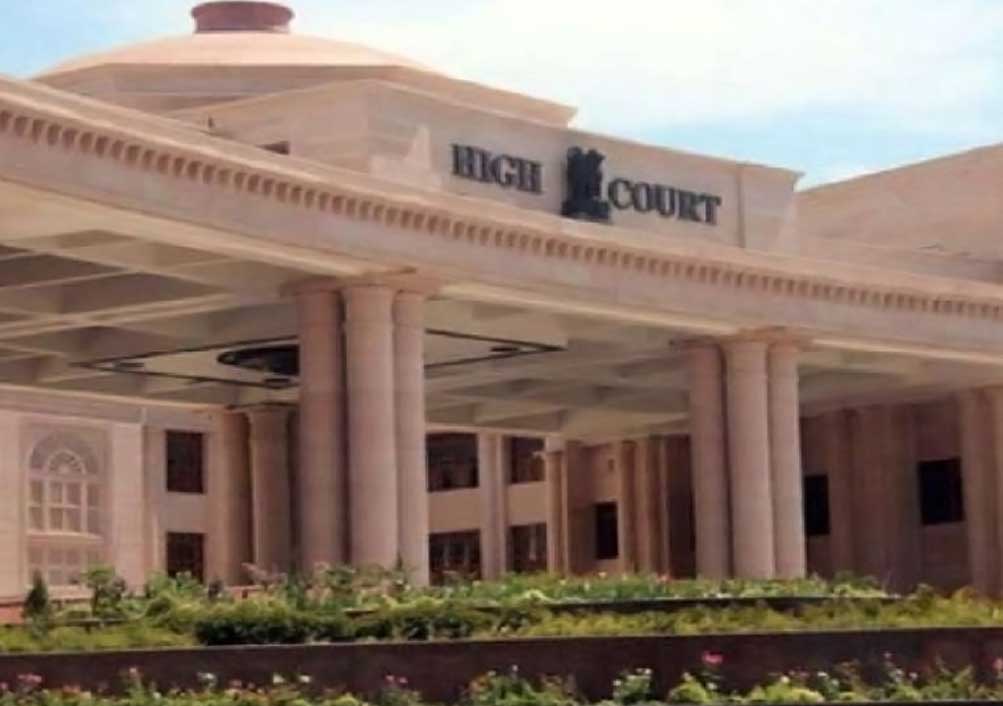HC allows Habeas Petition of murder accused, says delay in disposal of representation by District Magistrate & Central govt

Read Judgement: Kanhaiya Awasthi Thru Next Friend Shivangi Awasthi v. U.O.I. Thru Secy. Home Affairs New Delhi & Ors
Tulip Kanth
Lucknow, August 24, 2021: The Lucknow Bench of the Allahabad High Court recently quashed the detention order passed under Section 3 (2) of the National Security Act (NSA) against Kanahaiya Awasthi, an accused in the murder case of journalist Subham Mani Tripathi.
“Accordingly, there was cumulative delay in disposal of the representation of the petitioner by the District Magistrate, Unnao as well as Central Government. Thus, having regard to the nature of detention and rigor of law, we are of the view that there was disproportionate delay at both the ends,” reasoned the Bench of Justice Ramesh Sinha and Justice Saroj Yadav.
“Suffice is to hold that even though there is no fixed period of time for disposal of representation, the underlying message in the law is that all the concerned authorities, who are empowered to issue, approve or revoke detention orders, are duty bound to consider and dispose of the representations as expeditiously as possible. By now, it is also the settled principle of law that even if some delay in consideration of the representation may not become fatal to the detention but non-explanation of the same would certainly impeach the detention order,” added the Court.
The petitioner was arrested and detained in judicial custody pursuant to an F.I.R. being lodged by the brother of the deceased alleging that the journalist, who was a district correspondent of a news daily published from Unnao, was murdered by the petitioner and other co-accused persons.
Later, the District Magistrate, Unnao, on considering the recommendation of the sponsoring authority, invoked provisions of the N.S.A. and passed the order of detention which has been impugned in the instant Habeas Corpus Petition.
The detenue filed his representation to the Uttar Pradesh Advisory Board (Detention), Lucknow, Secretary (Home), Union of India, as well as the Secretary, Department of Home, State of U.P. The State Government then confirmed the detention order and later extended the period of detention tentatively for six months from the actual date of detention i.e. since September 6, 2020.
Challenging the impugned order, it was argued by the counsel for the detenue that the proceedings recommending invocation of N.S.A. had been initiated by the sponsoring authority much belatedly, after two and half months of the alleged solitary incident of murder, which itself created a doubt on the veracity of the entire proceeding for invocation of preventive detention under N.S.A.
It was also contended that there was an inordinate and unexplained delay in adjudication of the representation of the detenue by the Central Government, hence constitutional safeguard provided to the detenue under Article 22 (5) of the Constitution had been violated.
Allowing the Habeas Corpus Petition, the High Court opined that both the District Magistrate, Unnao and the Central Government were at fault. The detenue had submitted a representation on September 22, 2020 but the District Magistrate, Unnao took nine days in forwarding the same to the State Government and Central Government and there was no explanation on behalf of the District Magistrate in forwarding the petitioner’s representation beyond nine days.
According to the Division Bench, this procedural lacuna resulted in loss of nine days in forwarding the representation of the detenue by the District Magistrate. Moreover, it was also noted that the Central Government though has received the petitioner’s representation on October 5, 2020 but it could only be processed on October 14, 2020 when it was placed before the Under Secretary and the reasons for such a delay or day to day explanation in dealing with the file had not been made in the affidavit.
Furthermore, the file relating to the petitioner’s representation reached the office of Joint Secretary and, thereafter, report was sought from Central Agency and in doing so, 13 days time was taken by the Agency and no explanation was provided for this delay as well.
The High Court further noted that it is true that neither Article 22(5) of the Constitution nor N.S.A. has prescribed time limit for consideration of representations.
However, the Bench mentioned that if one looks at various provisions of N.S.A., prescribing specific periods for furnishing grounds of detention, approval of the detention by the State Government, submitting report to the Central Government and Advisory Board, the period prescribed for considering the detention order and representations by the Advisory Board, etc. the intention of the legislature can safely be inferred that representations of detenues have to be considered with all promptitude.
Accordingly, the Bench was of the view that there was delay in forwarding the petitioner’s representation on the part of the District Magistrate, Unnao and also delay in disposal of the petitioner’s representation on the part of Union of India, had substance and on this count, the impugned detention order was quashed.
Sign up for our weekly newsletter to stay up to date on our product, events featured blog, special offer and all of the exciting things that take place here at Legitquest.




Add a Comment